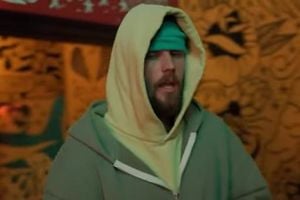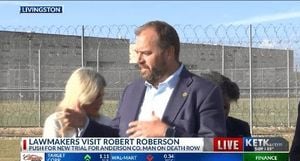On Wednesday, October 8, 2025, Turkey’s entertainment world was shaken when authorities launched a sweeping drugs-related investigation targeting some of the country’s most recognizable celebrities. The probe, led by Istanbul’s chief prosecutor and the Bureau for Smuggling, Narcotics and Economic Crimes, summoned 19 high-profile singers, actors, television personalities, and social media influencers for questioning and blood tests. Among those called in were household names such as Hadise Açıkgöz, Berrak Tüzünataç, Demet Evgar Babataş, and İrem Derici, as well as a host of other public figures whose faces grace screens and stages across the nation.
According to the Anadolu Agency and corroborated by the BBC, the operation unfolded early Wednesday morning, when Istanbul’s Provincial Gendarmerie Command arrived at the celebrities’ homes to escort them for laboratory testing and statements. Despite the dramatic nature of these pre-dawn pickups, officials emphasized that there were no formal detention orders. Those involved were not under arrest and, barring any immediate findings, were expected to be released following the procedures and pending review of laboratory results.
Turkish authorities have stated that the investigation focuses on suspected personal use of narcotic or stimulant substances. In Turkey, Article 191 of the Penal Code (Law No. 5237) criminalizes the use, possession, or acceptance of such substances for personal use, with penalties ranging from two to five years in prison. However, as reported by BBC and local media, courts frequently suspend prosecution for up to five years, ordering probation, treatment, and regular drug testing. If the accused comply with these conditions, the case can be dropped; repeated offenses or violations, on the other hand, can lead to formal trials and prison time.
The list of celebrities summoned reads like a who’s who of Turkish popular culture: Dilan Polat, Engin Polat, Kubilay Aka, Kaan Yıldırım, Duygu Özaslan Mutaf, Zeynep Meriç Aral Keskin, Özge Özpirinçci, Mert Yazıcıoğlu, Feyza Altun, Derin Talu, Deren Talu, Ziynet Sali, Birce Akalay, Metin Akdülger, and Ceren Moray Orcan were among those named in reports by Turkish outlets. Some, like Ziynet Sali, were out of the country and pledged to comply upon their return. Lawyers for several of the accused, including İrem Derici, stressed that their clients had already agreed to testify and denied any wrongdoing. As Derici’s lawyer noted, “She was going to give a statement and had not been briefed on the case file.”
The high-profile nature of the investigation has triggered intense debate across Turkish society, especially on social media. Journalist Cüneyt Özdemir described the operation as “Turkey’s largest celebrity-focused drug probe in recent years,” questioning the optics of deploying gendarmerie teams for early-morning house pickups while simultaneously highlighting the absence of formal detention. Writer and director Gani Müjde added his voice, urging authorities to focus their efforts on drug traffickers rather than staging headline-grabbing sweeps of public figures. Communications professional İnan Mutlu pointed out that blood testing is not linked to the separate offense of “encouraging drug use,” which typically concerns song lyrics or social media posts.
Reaction from the political sphere was swift. Burhanettin Bulut, a lawmaker from the opposition Republican People’s Party (CHP), criticized the choice of using the gendarmerie, the timing of the operation, and the focus on celebrities—many of whom, he noted, are critical of the government. “Many of those summoned are known for their opposition to current policies,” Bulut remarked, hinting at what some see as a politicized motive behind the probe.
This latest investigation comes amidst a broader climate of heightened scrutiny and legal pressure on artists, journalists, and opposition figures in Turkey. In recent months, prosecutors have pursued a string of cases against cultural figures, often on charges related to “encouragement” of drug use or violations of public morality. Pop singer Mabel Matiz, for example, is currently facing up to three years in prison over alleged “obscenity” in the lyrics of one of his songs—a case that prosecutors claim violates public morality laws. The girl band Manifest is similarly embroiled in legal proceedings for alleged “indecent acts” during a recent performance, with prosecutors seeking one-year jail terms for the group.
The entertainment industry isn’t the only sector feeling the heat. Prominent journalist Fatih Altaylı recently went on trial accused of making “threatening” remarks against President Recep Tayyip Erdoğan, facing a minimum five-year prison sentence. In March 2025, the detention of Istanbul Mayor Ekrem İmamoğlu—just days before he was expected to be named a presidential candidate for the upcoming 2028 elections—sparked widespread protests. İmamoğlu is widely regarded as one of Erdoğan’s strongest political rivals, and his detention was seen by many as another example of the government’s tightening grip on opposition voices.
President Erdoğan’s government, for its part, categorically denies that these investigations and prosecutions constitute a crackdown on dissent. Officials insist that the law is being applied equally and that recent operations, such as the April 2025 detention of 525 suspected drug dealers in Ankara—the country’s largest-ever narcotics operation—demonstrate a genuine commitment to tackling drug crime at all levels of society.
Still, the juxtaposition of aggressive anti-drug actions with legal cases against artists and journalists has fueled concerns about freedom of speech and the independence of Turkey’s judiciary. As reported by BBC, music and television stars, as well as social media influencers, have denied all accusations through their lawyers, and, as of Wednesday afternoon, no formal charges had been filed against any of the celebrities involved in the drug probe. The summoned public figures were expected to be released following blood tests and statements, pending further review of the case files and laboratory results.
For many in Turkey, the spectacle of beloved entertainers being escorted from their homes and summoned for questioning has sent shockwaves through the industry and beyond. Some see it as a necessary step in the fight against drug abuse; others, as a troubling sign of deepening government control over cultural life and free expression. As the investigation continues and the country awaits the results, the debate over the balance between law enforcement and civil liberties in Turkey is sure to intensify.
Whatever the outcome, one thing is clear: the intersection of celebrity, politics, and the law has rarely been more fraught—or more closely watched—than it is in Turkey today.






